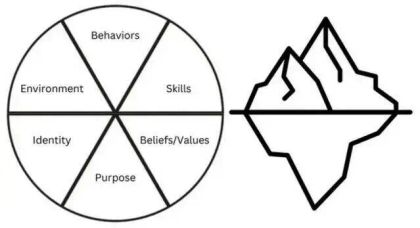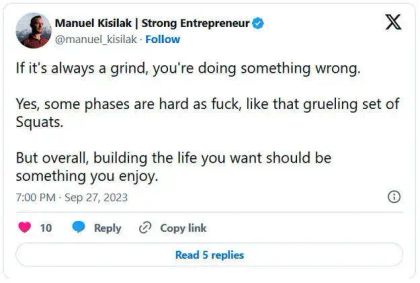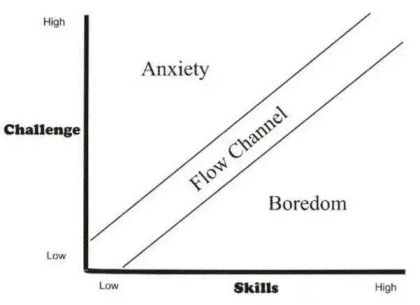I used to be addicted to video games:
In 2018 - before I quit - I calculated that I played more than 25000 hours.
Seeing that number made me sick:
Why was I so motivated to grind for hours in a virtual world, but not in real life?
Here's what I found so fascinating about those games:
- I could easily focus on one quest for hours
- I was in complete flow, losing track of time
- I didn’t want to stop playing, even if I felt mentally exhausted
- I would get back and try again if I failed, without getting frustrated
- I didn’t bother repetitive or boring tasks, like killing the same monsters for hours
But what if I could harness the same drive in real life?
Here's the thing:
Videogames cracked human motivation. And you can use it to create success outside of virtual worlds.
Here's seven ways videogames hook you and how to use them to crush your fitness and business goals:
1) Compelling mission
“Mass Effect” tasks you to unite all alien races of the galaxy to face the mysterious Reapers.
“Skyrim” takes you on an epic quest to save the world from the dragons that reappeared.
“The Walking Dead (Telltale)” charges you with protecting young Clementine in a zombie apocalypse.
How could you not get excited for that?
In THIS newsletter, I wrote about the Logical Levels that create your life:

Mission - your purpose - is the most powerful one.
- Mission drives Elon Musk to work over 100 hours per week on six companies.
- Mission lets parents take care of their babies, even if they’re exhausted.
- Mission led NASA to shoot astronauts onto the moon.
Here’s one of the most powerful questions you can ponder:
What’s your mission?
- Retire your parents?
- Make your industry a little bit better?
- Lose weight to be a role model for your kids?
Create one that’s more compelling than any distraction. You’ll have no problems getting into action - even when you don’t feel like it.
2) Divide your mission into sub-goals
Video games don’t put you against the main boss right away. There's a gradual buildup, a sequence of layered challenges.
You’re put on a journey where you take on challenges that build onto each other - which finally culminate in the fight against the main villain. Therefore, you always experience constant events of success.
Do the same for your real-life goals:
Let’s say you want to lose 50 lbs. Here’s what some of your subgoals could look like:
- Sign up to the gym
- Do your first workout
- Switch soda for water
- From 5 to 7 hours sleep
- Drop your first five pounds
- Train twice per week consistently
- Eliminate the energy crash after lunch
And so on, until you’ve reached your main objective. When you set goals and achieve them, it keeps you motivated.
3) Rewards that keep you playing
Videogames reward you after every milestone: A new weapon, armor, companions, or new territory that gets unlocked on the map.
We know that rewards are key to building habits: If you reward yourself when you finish smaller goals, you're more likely to keep going.
But videogames take it a step further: Their rewards incentivize you to keep playing.
Imagine you just spent 10 hours killing a certain type of monster to finally get a rare weapon. What are you going to do?
You’ll want to use that weapon to kill more monsters and see how much damage you can deal.
Reward yourself the same way in real life:
If you're trying to lose weight, don't treat yourself to chocolate if you know it makes you eat more. Instead, consider getting new gym equipment to stay motivated.
Or, if you're making YouTube videos for your business, reward yourself with a better camera after reaching 1000 views.

4) Visible progress
Video games clearly show how you've improved through level systems: You go from a level one peasant all the way up to a level 80 hero.
That hero is going to:
- Be stronger
- Wear different armor
- Have different abilities
- Be able to face the biggest challenges
The same principle got me hooked to strength training: I began with a 20kg Squat and gradually reached 100 kg and more.
Seeing this progress - and resulting change in the mirror - felt great and motivated me to continue.
Track your progress and make it visible:
- Take progress pictures
- Keep a training journal
- Use habit trackers
Seeing your progress daily is going to give you a ton of confidence and motivate you to go even further.
5) Make progression feel achievable
If video games had only one level and it would take you 1 million experience points to get there, you wouldn't feel motivated. It would feel like a grind.
Instead, video games make sure that you level up quickly: You go from level one to level two within a few minutes and to level 3, 4, 5, and so on.
As you progress, it gets a bit tougher to reach the next level, but it's still doable.
This is very similar to progressive overload in the gym:
Imagine you went to the gym and the only possibility you had was to go from a 20kg squat to a 200kg squat. It wouldn't be motivating at all.
Instead, you can increase with slow steps. You can go from 20 to 22.5 to 25 kg, and so on.
Make sure your next milestone is easy to reach (and reward yourself afterwards!).
6) Have your challenge match your skill level
Imagine you tried to battle a level 100 Dragon when you're just a level one peasant. It'd be frustrating because you wouldn't stand a chance.
That's like trying to bench press 200 kg the first time you step into the gym. Instead, video games make sure that you are consistently challenged, but you can always make it work.
Mihaly Csikszentmihalyi writes about it in his book "Flow".
If the challenge is too low, we feel bored. If the challenge is too high, we feel anxiety.

Image Source: “Flow” by Michail Csikszentmihalyi
Get yourself into the right amount of challenge and you'll feel driven to accomplish it.
If you’re able to Squat 100kg, you wouldn’t be motivated to tackle 200kg. But you also wouldn’t be motivated to do 20kg, because it’d be too easy.
Instead, you’d aim for 105kg - a doable challenge. Keep yourself in flow by exposing yourself to manageable challenges.
7) Community & like-minded people
Video games, especially online ones, bring together people who want the same thing: To level up and finish the main quest.
Even single-player games do this with groups like guilds and clans, where you have buddies to help with the main mission.
Hang out with folks who share your goals. For example, choose a gym that you actually enjoy and where people have the same mission as you.
When I moved to Vienna, I started lifting with competitive powerlifters. The community pushed me every workout, and I made amazing progress. Having a group like this makes success more likely.
Summary:
Video games cracked the code to human motivation. Here are the seven videogame principles and how to use them to crush your real-life goals:
- Compelling mission
- Break it down into sub-goals
- Smart rewards after finishing quests
- Make your progress visible
- Make it easy to go to the next level
- Have your challenge match your skill level
- Community & like-minded people
If you’re an entrepreneur or creator and want to get in your best shape ever within two hours per week, click the link and hop on a free 30-minute 1:1 strategy call with me.
